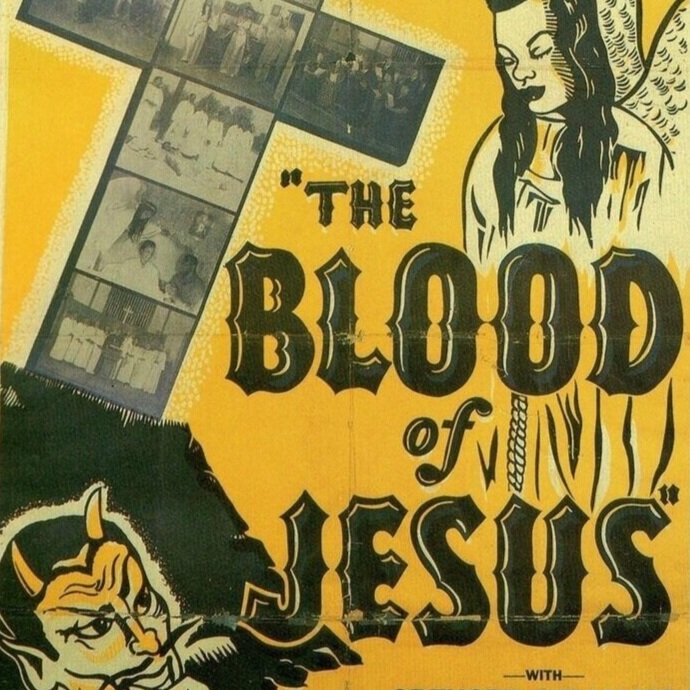
Within Our Gates
with an introduction by Charlene Regester
A searing indictment of racial injustice and conflict in early twentieth-century America—the Jim Crow Laws, the rebirth of the Ku Klux Klan, the Great Migration, the hatred and prejudice—Micheaux’s Within Our Gates was a fictionalized but penetrating portrait of black life. Despite the inequity in education and the constant threat of violence to blacks that the film depicted, it nonetheless offered the hope that racial uplift could help restore black citizens to a rightful position in American society and heal the country’s divisions.
Plot
After being rejected by her fiancé Conrad, who has been tricked into believing that she has been unfaithful to him, Sylvia Landry returns south to the town of Piney Woods in Mississippi to work in a school for black students. But when the school’s kindly administrator is unable to secure the funds to support his program (for which he receives a meager $1.49 per student per year from the state), Sylvia is forced to travel north again to raise money to keep the school open. Even after being robbed and then injured, she persists in seeking a benefactor. Only later is Sylvia’s own tragic past revealed and the heinous acts committed against her and her family exposed.
Significance in Race Film History
The only race filmmaker to make a successful transition from silent to sound films, Micheaux (1884-1951) is now recognized as the dean of early race filmmakers and the first black film auteur. In his films, he often focused on timely and controversial issues, from race denial and betrayal to rape and lynching. Within Our Gates, considered by many to be his finest film, was in large part a response and a counter-narrative to D. W. Griffith’s racist epic, The Birth of a Nation (1915). Yet, while the movement between North and South in Micheaux’s film paralleled the North/South dichotomies of Griffith’s film, the white-on-black violence that Micheaux portrayed was in diametrical opposition to Griffith’s depiction of black aggression, violence, and vengeance.
Within Our Gates also demonstrates the challenge of locating and preserving silent films, especially early race films. Long thought to be lost, a copy titled La Negra was discovered in an archive in Spain in the 1970s. Although the film was subsequently restored by the Library of Congress, most of its English title cards had been lost and the rest had to be re-translated from Spanish; a portion of the film was missing as well. So, in its current version, the film is at best an approximation of Micheaux’s original.
Until the re-discovery in 2014 of Lime Kiln Club Field Day (1913), Within Our Gates was the oldest known surviving feature race film by a black director. It remains a classic by one of early cinema’s most ambitious, prolific, and acclaimed directors and a valuable document of a troubling time in early twentieth-century social history.
- Barbara Tepa Lupack
“…Within Our Gates inaugurated Micheaux as a first-class director, for its complexity of plot, sophisticated filmmaking techniques…exposure of controversial topics, critique of race relations in twentieth-century America, and most of all, its re-enactment of a lynching on screen.”
— Charlene Regester
PROGRAM LECTURER
Charlene Regester
“Oscar Micheaux’s Within Our Gates”
Charlene Regester is an Associate Professor in the Department of African, African American, and Diaspora Studies and Faculty Affiliate with the Global Cinema Minor Program at the University of North Carolina at Chapel Hill. She is author of African American Actresses: The Struggle for Visibility, 1909-1960 (Indiana University Press, 2010), which was nominated for an NAACP Image Award. Recently, Regester completed a second book manuscript, The Color Line Onscreen: African American Performers Reflect the Cinema Industry’s Racial Anxiety with the Color Line, 1919-1966. She has published in numerous cinema studies journals and appeared in several documentaries chronicling the black cinema experience.
Film Credits
Cast: Evelyn Preer (Sylvia Landry), Charles D. Lucas (Dr. V. Vivian), Flo Clements (Alma Prichard), James D. Ruffin (Conrad Drebert), Jack Chenault (Larry Prichard), William Smith (Philip Gentry), Bernice Ladd (Mrs. Geraldine Stratton), Mrs. Evelyn (Elena Warwick), William Starks (Jasper Landry), Mattie Edwards (Jasper’s wife), Ralph Johnson (Philip Gridlestone), E. G. Tatum (Efrem), Grant Edwards (Emil Landry), Grant Gorman (Armand Gridlestone). Uncredited performers: Leigh Whipper, Jimmie Cook, S. T. Jacks. Director: Oscar Micheaux.
Writing credit: Oscar Micheaux.










